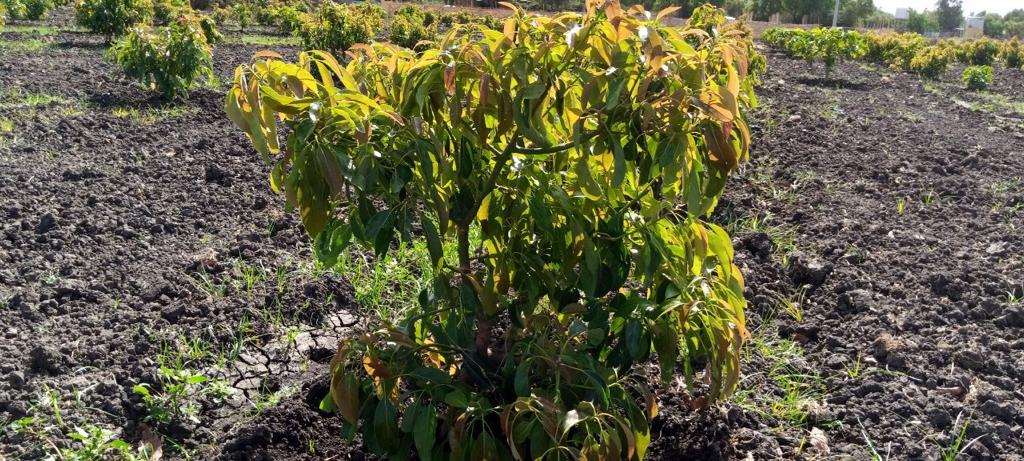
BY ADDISALEM MULAT
There can be no denying that Prime Minister Abiy Ahmed (PhD) has been discharging a wide spectrum of lofty responsibilities to catapult Ethiopia to the next level of accomplishment since he came to power two years ago.
He is not tired of working by the sweat of his brow for the love of pulling the people of Ethiopia out of the quagmire of poverty, returning Ethiopia to its former glory, and making the lives of all and sundry easier despite the challenges he faced in due course of carrying out reforms in the length and breadth of the country.
He every so often moves heaven and earth intending to dust the poverty of Ethiopia off and start an historic chapter in the history of the country. As a result, Ethiopia is witnessing a multitude of development accomplishments in every nook and cranny of the country.
It is no secret that back in the day, the forest coverage of the country was dwindling following deforestation, firewood collection, farmland expansion and other similar activities. Needless to say, the situation was moving into uncharted waters now and then in this regard.
It is to be remembered that as part of the Green Legacy Initiative, Prime Minister Abiy has made several people plant avocado and banana seedlings. At first, some people did not expect the intended target would be achieved and the dream of the Prime Minister would become a reality at the earliest possible time.
However, as time went by, everybody set in motion achieving the desired goal and moving in the right direction for the reason that they attach importance to the premier’s effective, plausible and touchable strategies.
To the surprise of everyone, most people who planted fruits and vegetables have been reaping the fruit of accomplishment and earning their daily bread over and over again. If every Tom, Dick, and Harry keeps on planting a wide spectrum of fruits and vegetables making use of small spaces, their bread will be buttered well at the earliest possible time.
The avocado and banana seedlings planted in most parts of the county as part of the Green Legacy initiative have been helping the farming community in particular and the nation in general have economic success.
Prime Minister Abiy Ahmed regarding the issue said, “The avocado and banana seedlings we planted as part of last year’s Green Legacy Initiative are progressing well. No doubt that as a nation of citizens committed to development, what we plant will bear fruit and what we sow, we will reap.”
Frankly speaking, what the premier said is true. If all Ethiopians work day in and day out to get rid of poverty from the face of the earth putting a variety of effective strategies into effect, the intended target could be achieved in the shortest possible time.
To get all Ethiopians play a part in planting vegetables and fruits in every corridor of their respective gardens, the government of Ethiopia should stand by the side of the general public and make an effort to shower them with a piece of advice and consultancy. On top of that, they should be familiarized with the dos and don’ts of planting fruits and vegetables.
Be that as it may, following Prime Minister Abiy’s initiative, an assortment of people managed to plant quite a lot of tree seedlings in every corner of the country. On this account, Ethiopia’s weather condition and its forest coverage are getting back on track. The Premier has been making history and the unthinkable attainable through his diligence and hard work.
Regarding the green legacy initiative Prime Minister Abiy Ahmed, scholars have come up with a wide spectrum of comments and suggestions.
In an interview Professor Masresha Fetene, an Emeritus Professor of Plant Ecophysiology at Addis Ababa University gave to The Ethiopian Herald said, “Currently, taking the initiative of Prime Minister Dr. Abiy Ahmed, the nation is engaged in a big drive to plant billions of tree seedlings. This is an excellent initiative. For political commitment, it cannot get any better. The enthusiasm generated is truly unbelievable.
He elucidated that, overall, the effort in reforestation and afforestation has been very sporadic. For much of its long history, the forestry sector did not have much political commitment. The little effort conducted has not been backed by good background research and suffered from a lack of follow-up. Nevertheless, currently, the sector has gained good political commitment from high government officials – especially the Prime Minister.
As to him, anything that is espoused by high government officials has always a better chance of implementation. No leader of this country has ever been as engaged in tree planting as Prime Minister Dr. Abiy. It is a historical opportunity to seize.
There are many reasons why this campaign is indispensable. The first of these is the fact that it has increased people’s awareness of the benefits of environmental protection and tree planting. The motivation, gusto, and interest we observed, especially in the young have been phenomenal.
We have seen people taking responsibility and planting tree seedlings in thousands in areas designated and provided by authorities. What is also good about the campaign is that it brought the importance of planting fruit trees.
“One interesting feature we observed was that some of the seedlings were bought from organized youth who have been nursing indigenous seedlings. This is very encouraging and promising. Raising indigenous seedlings is not an easy matter for that matter. And yet I have seen several young guys who presented indigenous seedlings in thousands. This is a very valuable engagement and means of livelihood for part of the youth,”
The most critical point is bringing home the realization that Ethiopian’s development is strongly dependent on what we do to protect our forests and afforest our degraded and barren landscapes.
The survival of our dams, including and especially the Grand Ethiopian Renaissance Dam, is inseparably tied to sustainable land management of the river basins and sustainable environmental protection.
The promise of GERD is dependent on what we do now in the Choke mountains, among others. Thus governmental and non-governmental institutions, as well as citizens, need to work in unison and coordination for sustainable development of our forest resources.
In an interview Sebsebe Demissew, a Professor of Plant Systematics and Biodiversity at Addis Ababa University gave in the recent past to The Ethiopian Herald said, “When we have massive deforestation in many parts of our country, any attempt to plant trees in deforested areas has to be seen positively.
“The idea spearheaded by the Prime Minister and his participation together with other high ranking officials and community members is inspirational.”
The explanations linking the massive plantation programs with afforestation, minifying the impacts of flash floods, and improving the livelihood of communities should be applauded. This will undoubtedly change the attitude of citizens to plant trees and appreciate the connection with increased biodiversity and ecosystem services they provide.
As to him, there was an estimate that Ethiopia’s forest coverage in the early 19th Century was about 40 percent. If we could attain that percentage at a national level, it would be great. But we should be cognizant of the fact that the current Ethiopian population is much higher and there is a need to consider that.
However, the enormous enthusiasm and effort put into the plantations by the Prime Minister should be taken up by citizens across the country following the effect of coordination of regional governments up to the lowest government structure.
The Ethiopian Herald December 9/2020




